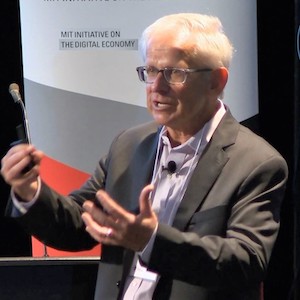 Complaining about health care prices is nothing new. The medical component of CPI has been higher than the overall CPI for decades. As far back as 1989 Gerry Anderson and colleagues showed "It's the Prices, Stupid" that explained why our national spending was so high compared to other countries. More recently, Elizabeth Rosenthal detailed those prices in an series of reports in The New York Times. She recently followed those up with her incisive book An American Sickness. Dr. Rosenthal also illustrated some of the clever techniques used to wring the most money out of our pockets, such as the upcoding industry and tacking facility fees onto visits. As the saying goes, if you're sitting at a poker table and you can't figure out who the sucker is, it's you.
Complaining about health care prices is nothing new. The medical component of CPI has been higher than the overall CPI for decades. As far back as 1989 Gerry Anderson and colleagues showed "It's the Prices, Stupid" that explained why our national spending was so high compared to other countries. More recently, Elizabeth Rosenthal detailed those prices in an series of reports in The New York Times. She recently followed those up with her incisive book An American Sickness. Dr. Rosenthal also illustrated some of the clever techniques used to wring the most money out of our pockets, such as the upcoding industry and tacking facility fees onto visits. As the saying goes, if you're sitting at a poker table and you can't figure out who the sucker is, it's you.
Jeff Bezos
See the following -
A New Kind of Doctor's Office Charges a Monthly Fee and Doesn't Take Insurance — and It Could Be the Future of Medicine
 Dr. Bryan Hill spent his career working as a pediatrician, teaching at a university, and working at a hospital. But in March 2016, he decided he no longer wanted a boss. He took some time off, then one day he got a call asking if he'd be up for doing a house call for a woman whose son was sick. He agreed, and by the end of that visit, he realized he wanted to treat patients without dealing with any of the insurance requirements. Then he learned about a totally different way to run a doctor's office...
Dr. Bryan Hill spent his career working as a pediatrician, teaching at a university, and working at a hospital. But in March 2016, he decided he no longer wanted a boss. He took some time off, then one day he got a call asking if he'd be up for doing a house call for a woman whose son was sick. He agreed, and by the end of that visit, he realized he wanted to treat patients without dealing with any of the insurance requirements. Then he learned about a totally different way to run a doctor's office...
- Login to post comments
Amazon Is Trying to Control the Underlying Infrastructure of Our Economy
We often talk about Amazon as though it were a retailer. It's an understandable mistake. After all, Amazon sells more clothing, electronics, toys, and books than any other company. Last year, Amazon captured nearly $1 of every $2 Americans spent online. As recently as 2015, most people looking to buy something online started at a search engine. Today, a majority go straight to Amazon. But to describe Amazon as a retailer is to misunderstand what the company actually is, and to miss the depth of the threat that it poses to our liberty and the very idea of an open, competitive market...
- Login to post comments
Amazon Pushes Yet Another Publisher Around
Once again, Amazon appears to be putting the screws to a major publisher. According to the New York Times, the king of all Internet retailing “has begun discouraging” shoppers from buying Hachette releases by stretching out shipping times to two weeks or longer...
- Login to post comments
E-Book Ruling Gives Amazon An Advantage
Jeff Bezos, the founder of Amazon, loves disrupting markets. In that regard, he must be having a delightful summer. The book business, once so mired in the past it seemed part of the antiques trade, is up for grabs. Read More »
- Login to post comments
How Online Shopping Makes Suckers of Us All
 Will you pay more for those shoes before 7 p.m.? Would the price tag be different if you lived in the suburbs? Standard prices and simple discounts are giving way to far more exotic strategies, designed to extract every last dollar from the consumer. As Christmas approached in 2015, the price of pumpkin-pie spice went wild. It didn’t soar, as an economics textbook might suggest. Nor did it crash. It just started vibrating between two quantum states. Amazon’s price for a one-ounce jar was either $4.49 or $8.99, depending on when you looked. Nearly a year later, as Thanksgiving 2016 approached, the price again began whipsawing between two different points, this time $3.36 and $4.69...
Will you pay more for those shoes before 7 p.m.? Would the price tag be different if you lived in the suburbs? Standard prices and simple discounts are giving way to far more exotic strategies, designed to extract every last dollar from the consumer. As Christmas approached in 2015, the price of pumpkin-pie spice went wild. It didn’t soar, as an economics textbook might suggest. Nor did it crash. It just started vibrating between two quantum states. Amazon’s price for a one-ounce jar was either $4.49 or $8.99, depending on when you looked. Nearly a year later, as Thanksgiving 2016 approached, the price again began whipsawing between two different points, this time $3.36 and $4.69...
- Login to post comments
It’s ‘Digital Heroin’: How Screens Turn Kids into Psychotic Junkies
Susan* bought her 6-year-old son John an iPad when he was in first grade. “I thought, ‘Why not let him get a jump on things?’ ” she told me during a therapy session. John’s school had begun using the devices with younger and younger grades — and his technology teacher had raved about their educational benefits — so Susan wanted to do what was best for her sandy-haired boy who loved reading and playing baseball. She started letting John play different educational games on his iPad. Eventually, he discovered Minecraft, which the technology teacher assured her was “just like electronic Lego.” Remembering how much fun she had as a child building and playing with the interlocking plastic blocks, Susan let her son Minecraft his afternoons away...
- Login to post comments
Kangaroos, Insurance Companies, and the Rising Cost of Healthcare
- Login to post comments
Numbers Don't Lie: Patent Trolls Are A Plague
Recent research supports view that patent troll activity is rising -- costing America a fortune in wasted legal fees and lost jobs Read More »
- Login to post comments
Open Data Can Drive Partnerships With Government
As governments and businesses — and increasingly, all of us who are Internet-connected — release data out in the open, we come closer to resolving the tiresomely famous and perplexing quote from Stewart Brand: “Information wants to be free. Information also wants to be expensive.” Open data brings home to us how much free information is available and how productive it is in its free state, but one subterranean thread I found in Joel Gurin’s book Open Data Now highlights an important point: information is very expensive. Read More »
- Login to post comments
The Growing Rivalry Between Google and IBM
 Still the growing rivalry is unmistakeable. Very few companies are capable of developing this type of deep learning technology and clearly, both IBM and Google are leading the pack. To be sure, other companies such as Facebook and Microsoft are also developing capabilities in this area, but up to this point at least, they don’t seem to have made quite as much progress.
Still the growing rivalry is unmistakeable. Very few companies are capable of developing this type of deep learning technology and clearly, both IBM and Google are leading the pack. To be sure, other companies such as Facebook and Microsoft are also developing capabilities in this area, but up to this point at least, they don’t seem to have made quite as much progress.
- Login to post comments
The New Rules of Healthcare Platforms (Part 4): APIs Enable the Platforming of Healthcare
 Recent regulations have mandated the use of HL7 FHIR APIs (application programming interfaces) to share health data. The regs apply to healthcare providers, payers, and technology developers who participate in federal programs. Many incumbent healthcare organizations are viewing these mandates as a compliance burden. That’s short-sighted. We recommend a more opportunistic POV. APIs facilitate the sharing of health data across different devices and platforms. By adopting APIs, healthcare organizations can transform themselves from traditional service providers into powerful platforms that can connect patients, providers, and other stakeholders in new and innovative ways.
Recent regulations have mandated the use of HL7 FHIR APIs (application programming interfaces) to share health data. The regs apply to healthcare providers, payers, and technology developers who participate in federal programs. Many incumbent healthcare organizations are viewing these mandates as a compliance burden. That’s short-sighted. We recommend a more opportunistic POV. APIs facilitate the sharing of health data across different devices and platforms. By adopting APIs, healthcare organizations can transform themselves from traditional service providers into powerful platforms that can connect patients, providers, and other stakeholders in new and innovative ways.
- Login to post comments
Using It or Losing It? The Case for Data Scientists Inside Health Care
As much as 30% of the entire world’s stored data is generated in the health care industry. A single patient typically generates close to 80 megabytes each year in imaging and electronic medical record (EMR) data. This trove of data has obvious clinical, financial, and operational value for the health care industry, and the new value pathways that such data could enable have been estimated by McKinsey to be worth more than $300 billion annually in reduced costs alone. If appropriate investments in data science are not made in-house, then hospitals and health systems will run the risk of becoming reliant on outsiders to analyze the data that ultimately will be used to inform decisions and drive innovation”...
- Login to post comments